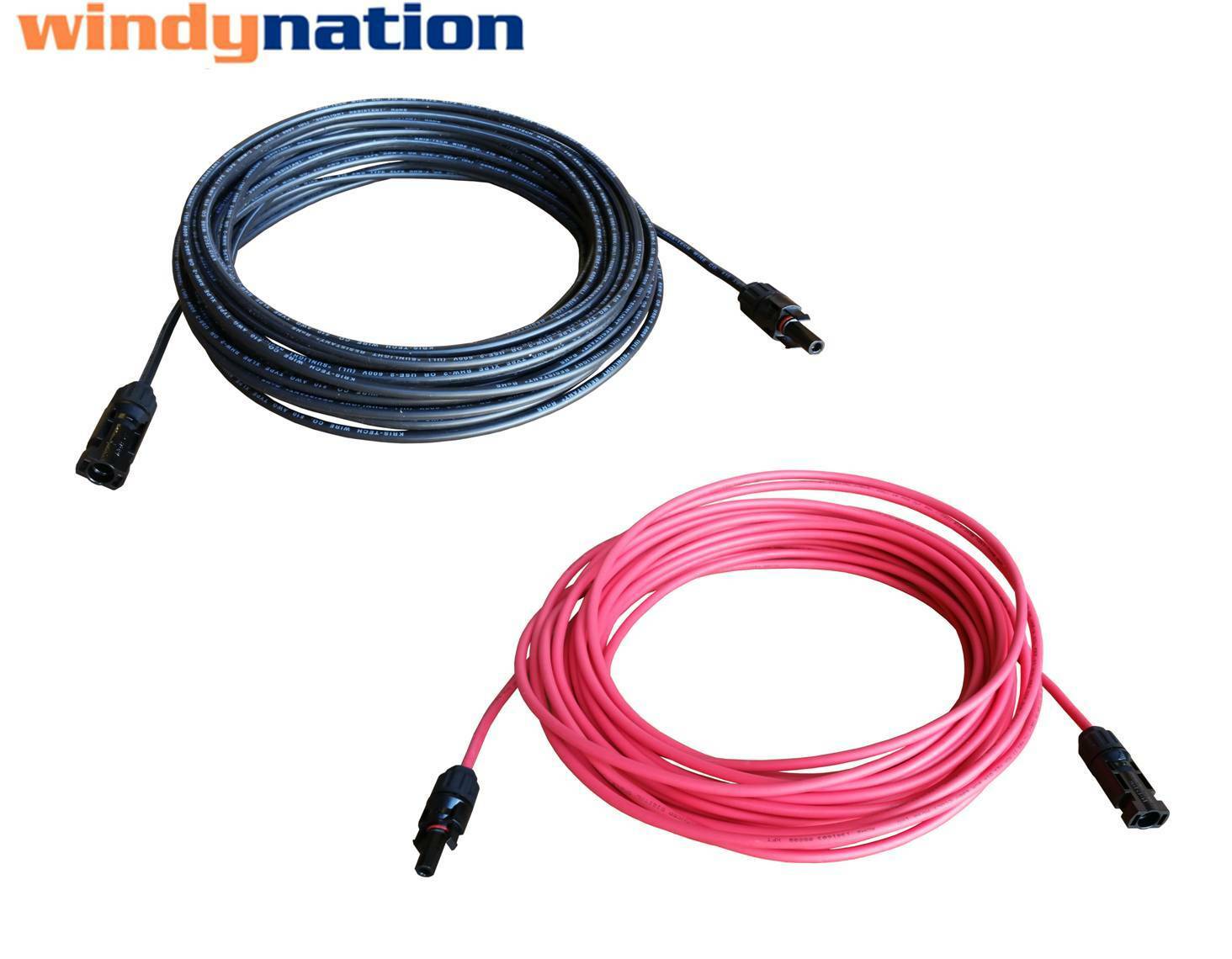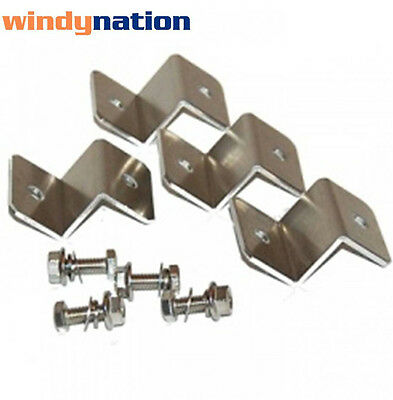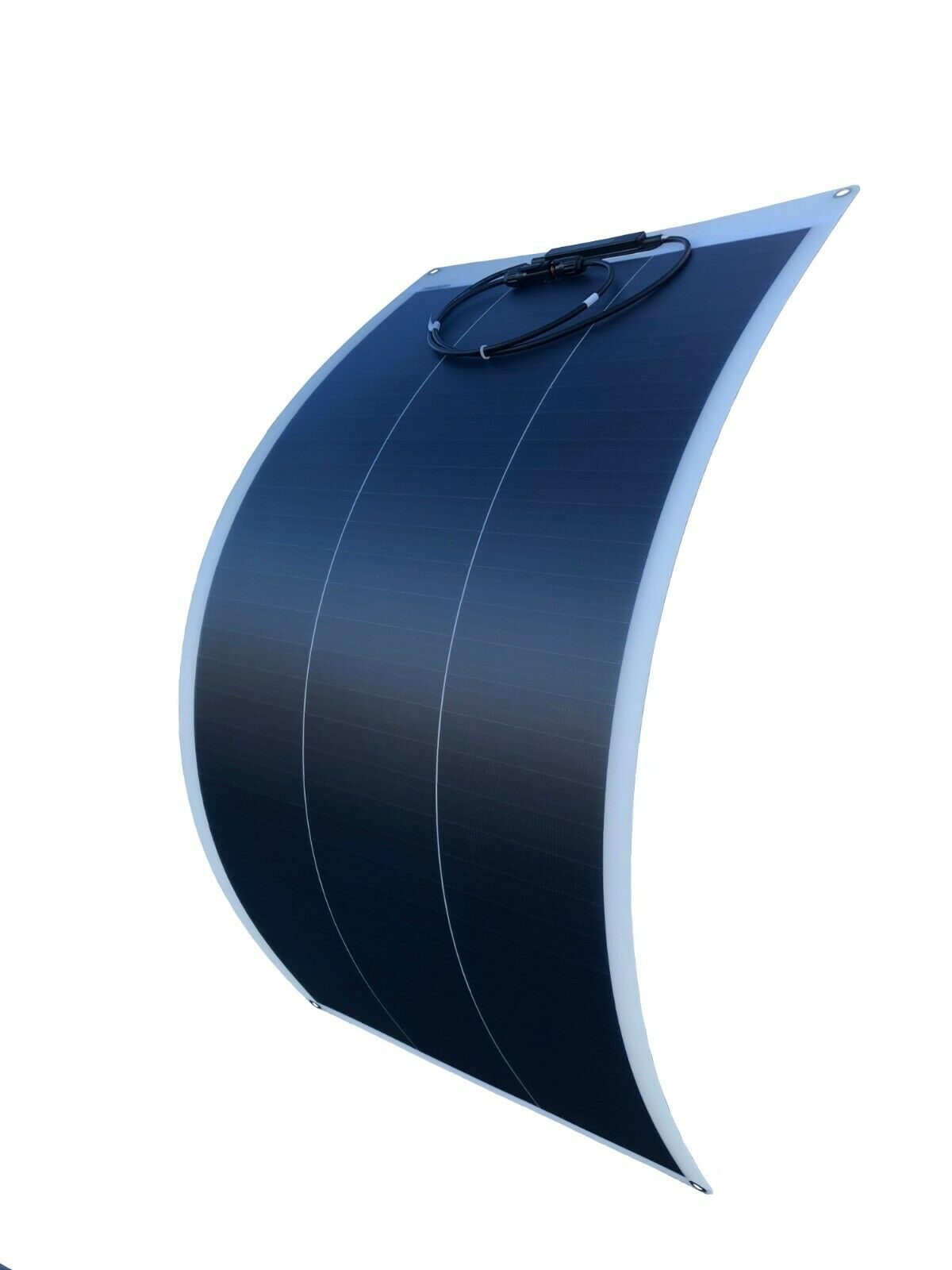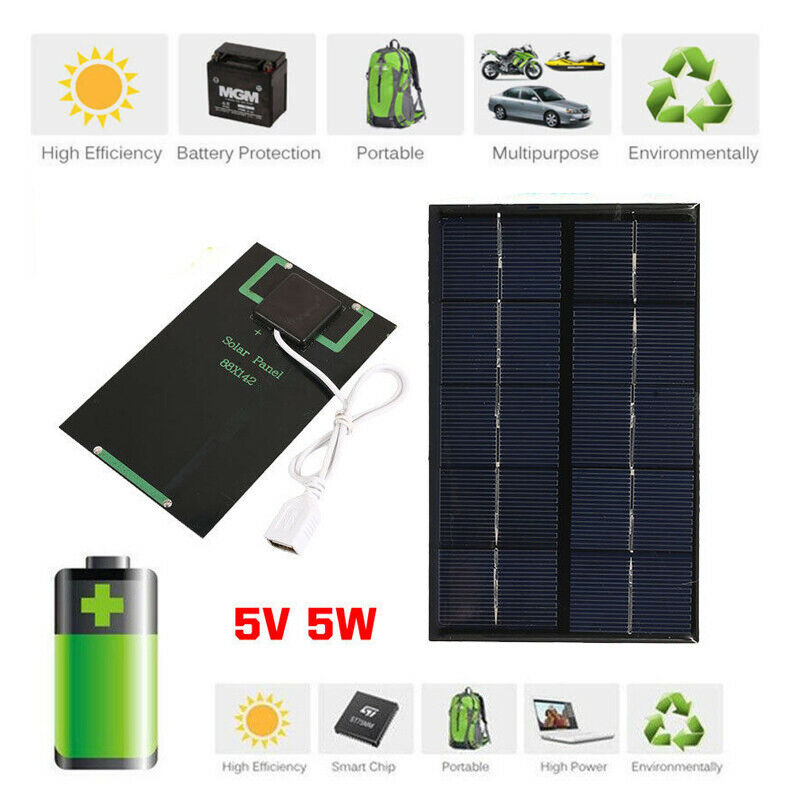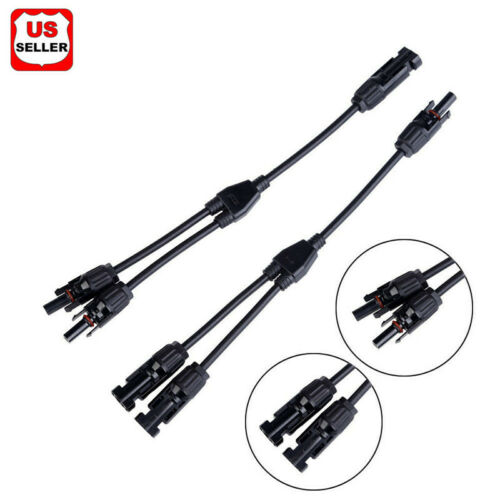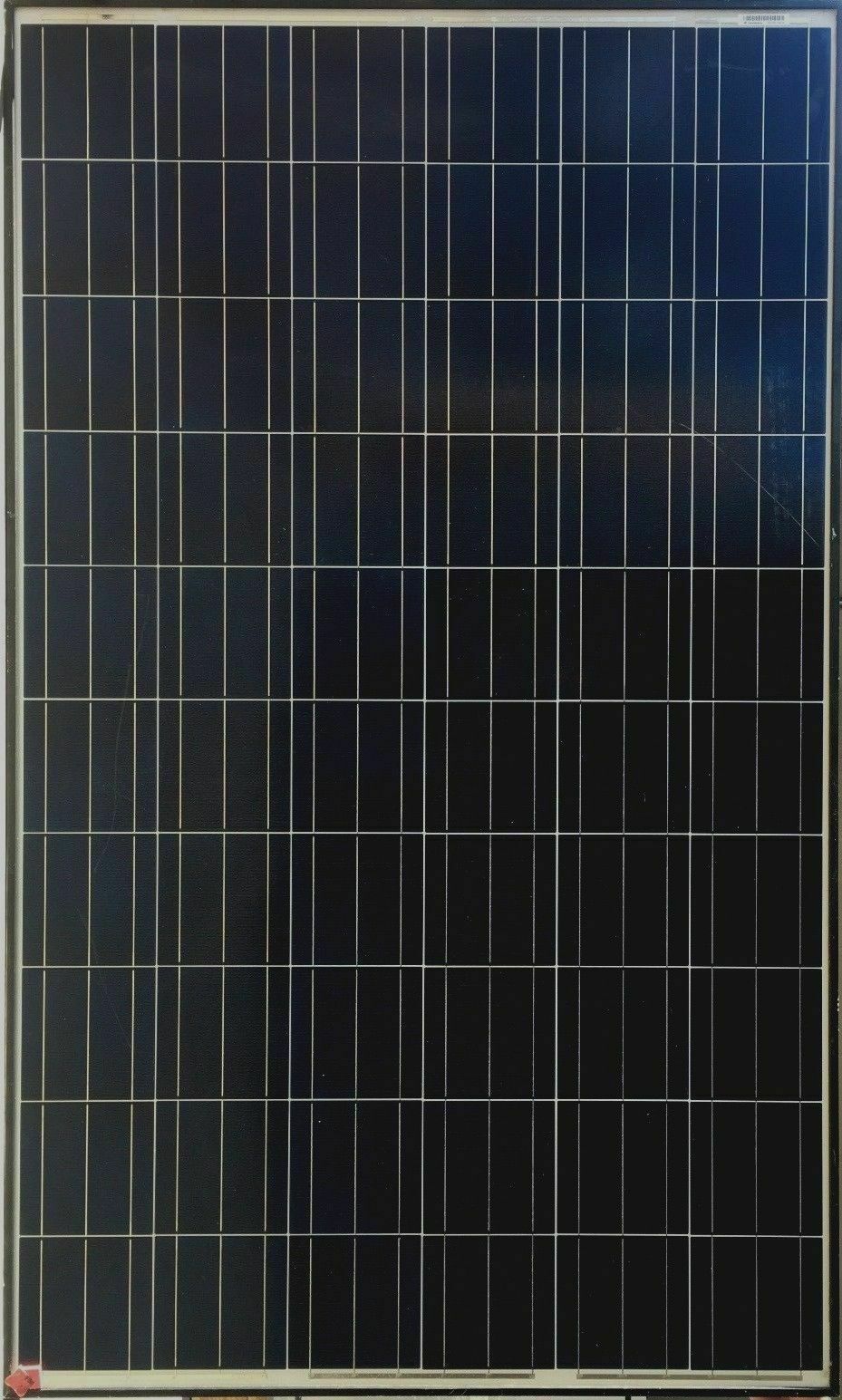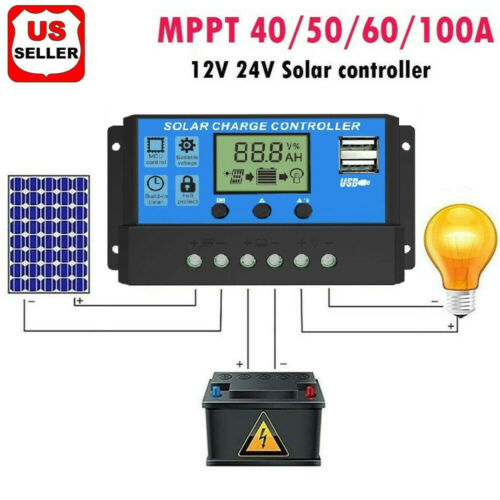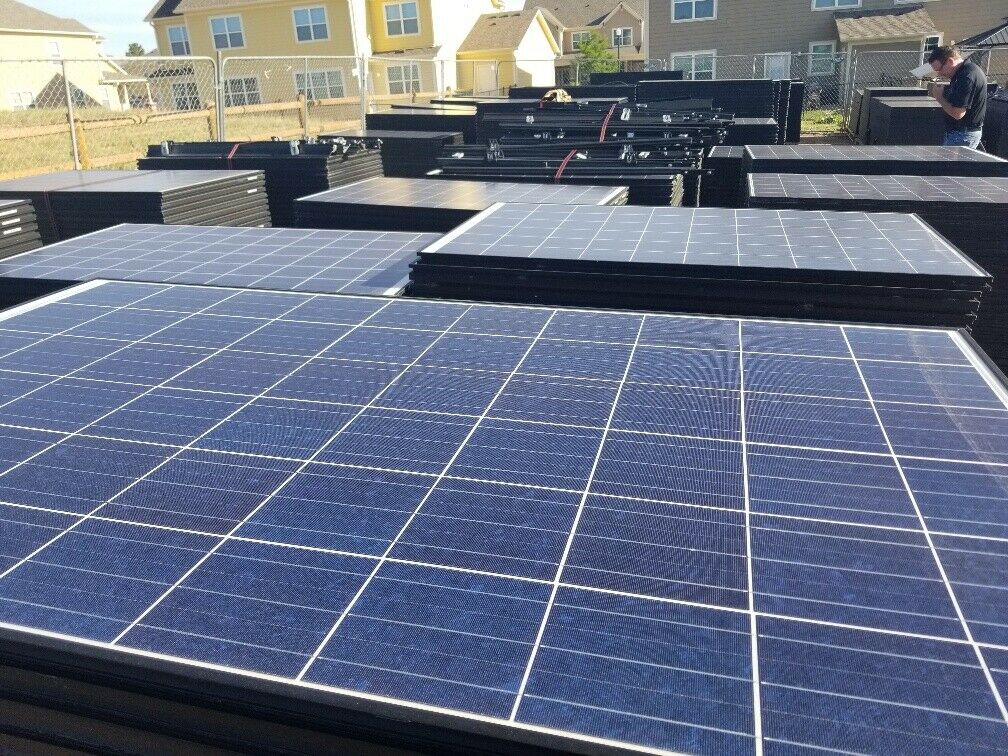-40%
100 MONOCRYSTALLINE solar cells 21.4% eff. grade A 4 BUSS BAR NEW IN SEALED BOX
$ 50.13
- Description
- Size Guide
Description
HEART OF THE SUN-SOLARSells many items needed to build your own solar panels, solar cells, junction boxes, tabbing wire, buss wire, solder, soldering irons, EVA encapsulation, rosin flux pens, MC-4 connectors, and more. visit my store for a complete list. Not sure what you need send me a question and some details. Brian
SEALED BOXES NEW FROM FACTORY 100 CELLS PER BOX
New very high efficiency mono crystalline " PERC"solar cells 21.40 % eff. GREAT CELLS GREAT PRICE
.567 volts per cell
9.22 amps per cell
5.23 watts per cell
a 36 cell panel would be
36 x 5.23 v =18.83 v,, 18,83 x 9.22A = 188.3 watts per panel.
all cells rated using STC ( standard test conditions )
STC stands for “Standard Test Conditions” and are the industry standard for the conditions under which a solar panel are tested. By using a fixed set of conditions, all solar panels can be more accurately compared and rated against each other. There are three standard test conditions which are:
1. Temperature of the cell – 25°C. The temperature of the solar cell itself, not the temperature of the surrounding.
2. Solar Irradiance – 1000 Watts per square meter. This number refers to the amount of light energy falling on a given area at a given time.
3. Mass of the air – 1.5. This number is somewhat misleading as it refers to the amount of light that has to pass through Earth’s atmosphere before it can hit Earth’s surface, and has to do mostly with the angle of the sun relative to a reference point on the earth. This number is minimized when the sun is directly above as the light has to travel a minimum distance straight down, and increases as the sun goes farther from the reference point and has to go at an angle to hit the same spot.
NOTE: in reality achieving the STC #'s is not possible , kinda like the EPA for gas mileage on cars, it is a benchmark for testing and comparison. No one but me will tell you about STC on a cell listing.
so much will depend on your local conditions such as longitude,latitude, time of year, time of day ,sky conditions, airplane contrails ETC. ETC.
Note on size: 6 " x 6" ( 156 mm x 156 mm) WAS the standard size for many years, in an
attempt
to make more
efficient
solar panels
manufacturers
are using cells
slightly
larger then the old standard of 6 x 6.
these cells are 6 3/16 by 6 3/16 (156.75 x 156.75 mm)
Wafer Sizes
Although not directly a change to any manufacturing techniques, one of the easiest methods manufacturers have found to increase their module performance is using a larger wafer size. Traditionally, mono-crystalline wafer sizes of 156 mm side length cut from a 200 mm diameter ingots have been used for over a decade. These wafers are known as type M0.
With wafer manufacturers pushing the size of the silicon ingots, 2 different types of wafers were produced, M1 and M2. With only a marginal increase in side length being 156.75 mm, their differences lie in the ingots they were cut from. M1 wafers are cut from ingots of diameter 205 mm whereas M2 wafers are cut from ingots of diameter 210 mm.
PERC solar cells:
1. What does PERC mean?
Literally, it stands for
Passivated Emitter and Rear Cell
. You also find the term
Passivated Emitter and Rear Contact
.
2. What is it?
PERC cell technology defines a solar cell architecture that differs from the standard cell architecture that has been in use for three decades and that is usually featured in all photovoltaic manuals.
The objective of scientists being to get the most of electrons out of the solar cells, the PERC architecture essentially enables to improve light capture near the rear surface and to optimize electrons capture.
Bottom line: a bit of production is gained from light reflecting on the back of the cell. Unheard of years ago.







